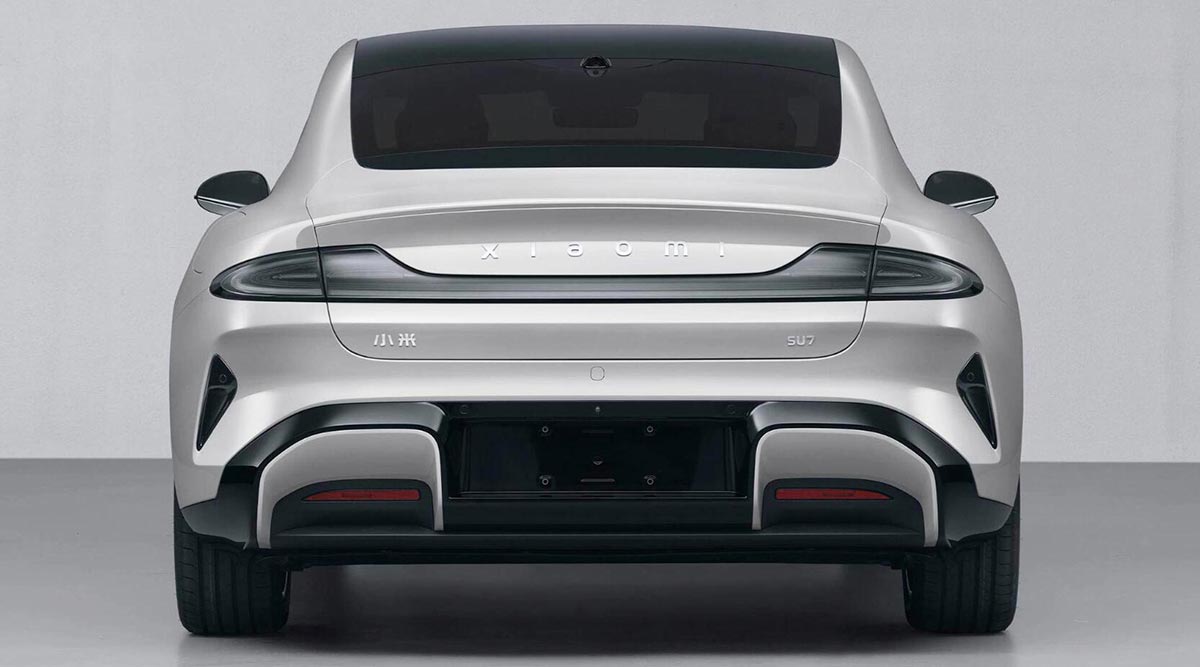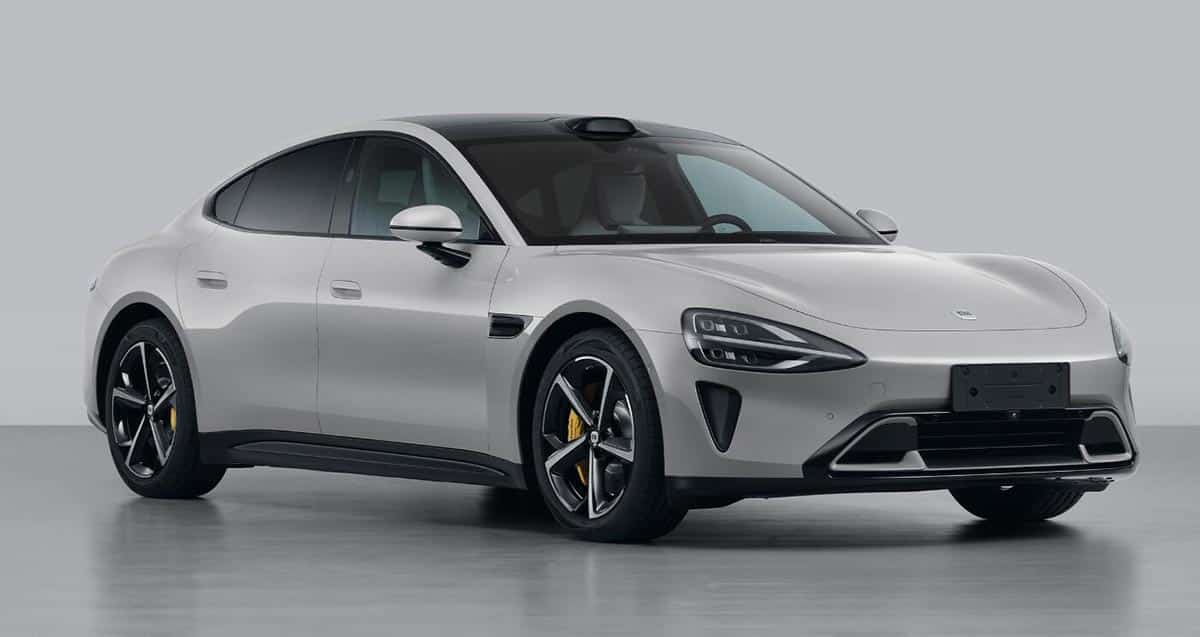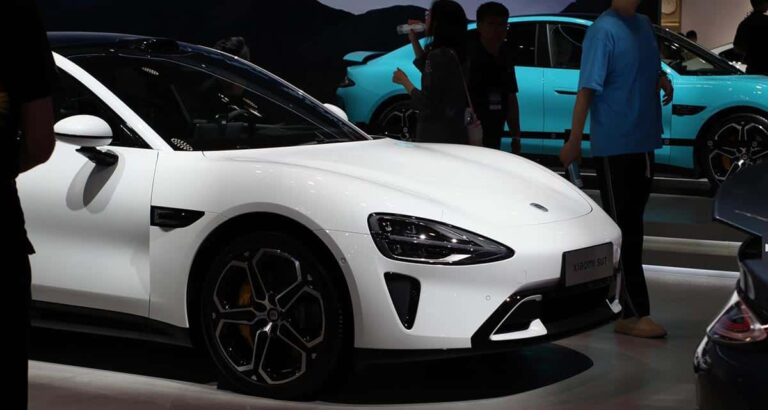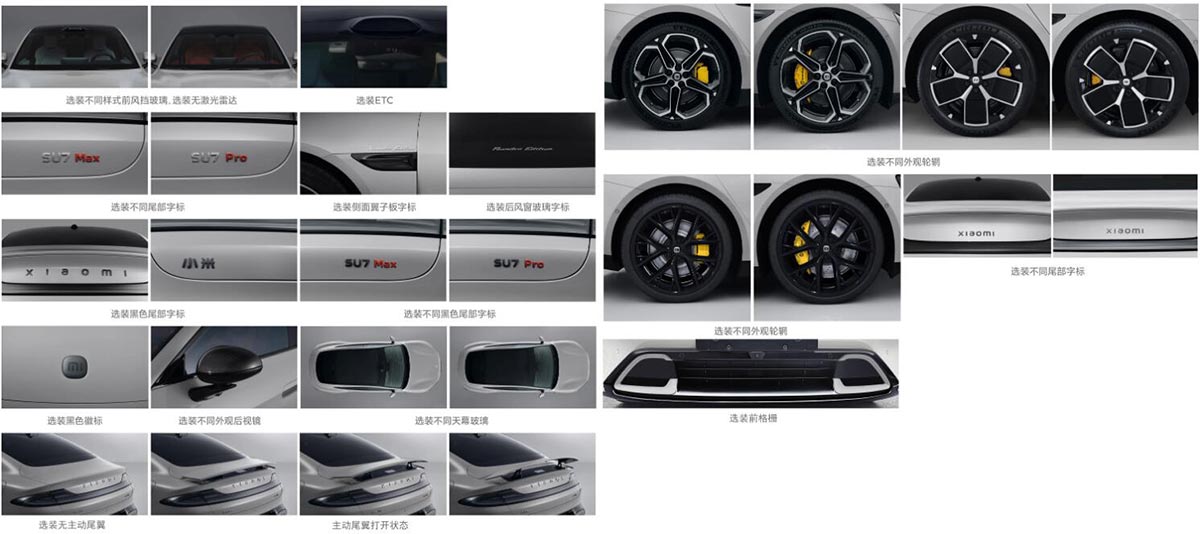Xiaomi has re-filed for the SU7, with the manufacturer becoming Xiaomi itself instead of the previous BAIC.

Xiaomi (HKG: 1810, OTCMKTS: XIACY) has gained independent car-making qualification, after previously using BAIC's credentials to build its vehicles.
China's Ministry of Industry and Information Technology (MIIT) released its latest catalog of models that will soon be allowed to be sold for public comment today, and Xiaomi's first EV model, the SU7, is included.
The public can submit their feedback between July 13-19. Entering the catalog is the last major regulatory process by which a model can be allowed to be sold in China.
Xiaomi has four models in the catalog, with model numbers XMA7000MBEVA1, XMA7000MBEVR2, XMA7000MBEVR3, XMA7000MBEVR5, where the "XM" is supposed to stand for Xiaomi.
The name of the producer of these four models is Xiaomi Automotive Technology Co Ltd and the brand at the end of the vehicle has changed from "Beijing Xiaomi" to "Xiaomi."
This means that Xiaomi's EV unit, Xiaomi EV, has been granted independent vehicle manufacturing status and does not need to continue using BAIC's credentials.
On November 15, 2023, the Xiaomi SU7 made its first entry into the MIIT's filing catalog, with the page showing the manufacturer as BAIC Off-road Vehicle, the off-road vehicle business division of BAIC Group, rather than Xiaomi.
At the time, local media reported that Xiaomi was only borrowing BAIC's automobile production qualification, while the actual production was carried out in its own factory.
This means that Xiaomi didn't quite get the car production qualification issue sorted out at the time, so the model's filing information lists the producer as BAIC Off-road Vehicle.
In the latest filing page, the Xiaomi SU7's production address is No. 21 Courtyard, Huanjing Road, Beijing Economic-Technological Development Zone, Beijing, the same as the filing page from last November.
The model's core specification information remains unchanged, except for the manufacturer's name at the end.
China requires local automakers to have qualifications issued by the economic planner National Development and Reform Commission (NDRC) in order to produce vehicles under their own brand names.
The country has tightened its management of NEV production qualifications since 2017, and startups established in the past few years have solved the problem mainly by acquiring existing carmakers.
Very few have gained qualifications to build vehicles through their own applications, and Nio (NYSE: NIO) is one of the few such companies that gained an independent qualification to build vehicles late last year, after years of producing vehicles under the name Anhui Jianghuai Automobile Group (JAC).
China's control over car-making qualifications is largely driven by concerns over overcapacity. For Xiaomi, that concern doesn't seem to exist.
Xiaomi launched the SU7 on March 28, and the all-electric sedan, its first model, has been an unprecedented success.
Customers who currently order the Xiaomi SU7 will have to wait about 30 weeks for delivery, according to data monitored by CnEVPost.
Xiaomi EV would deliver more than 100,000 units in 2024 and challenge the delivery target of 120,000 units, Xiaomi management previously said.


